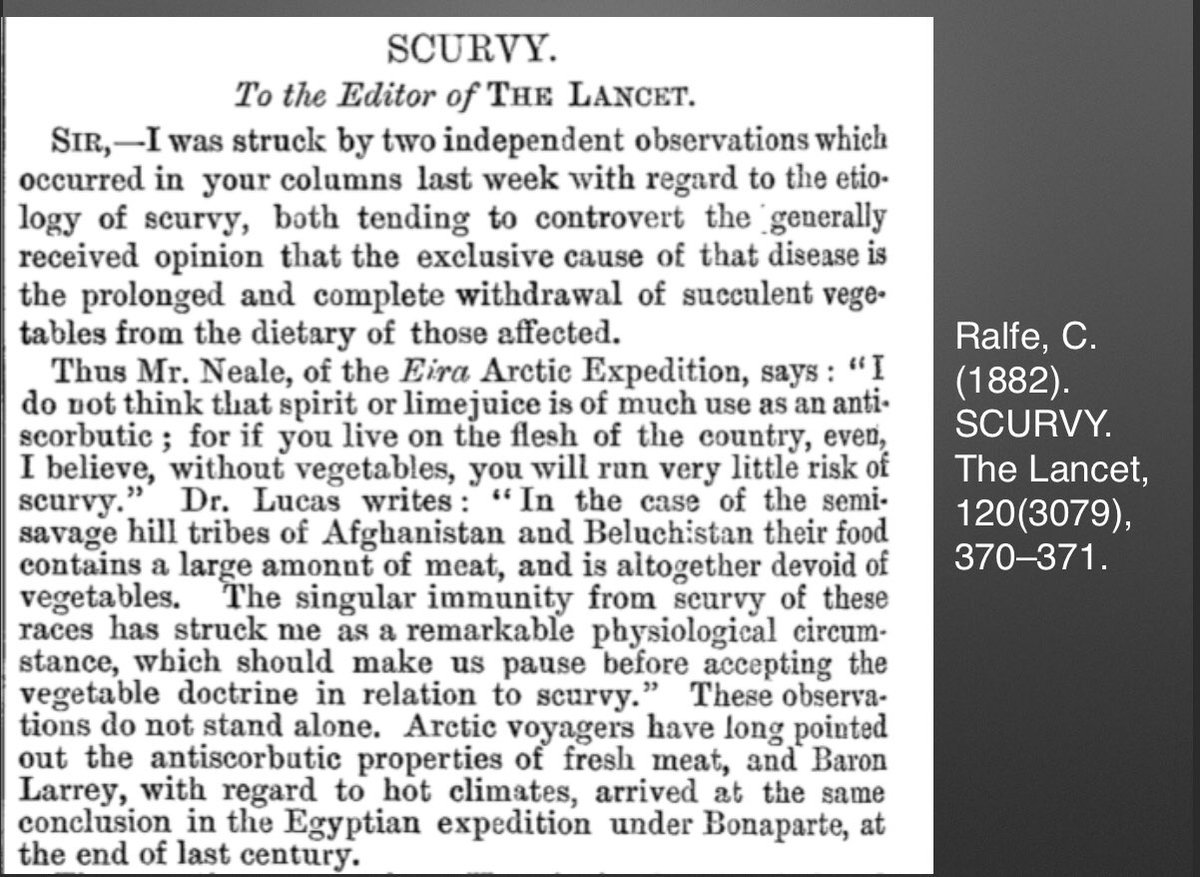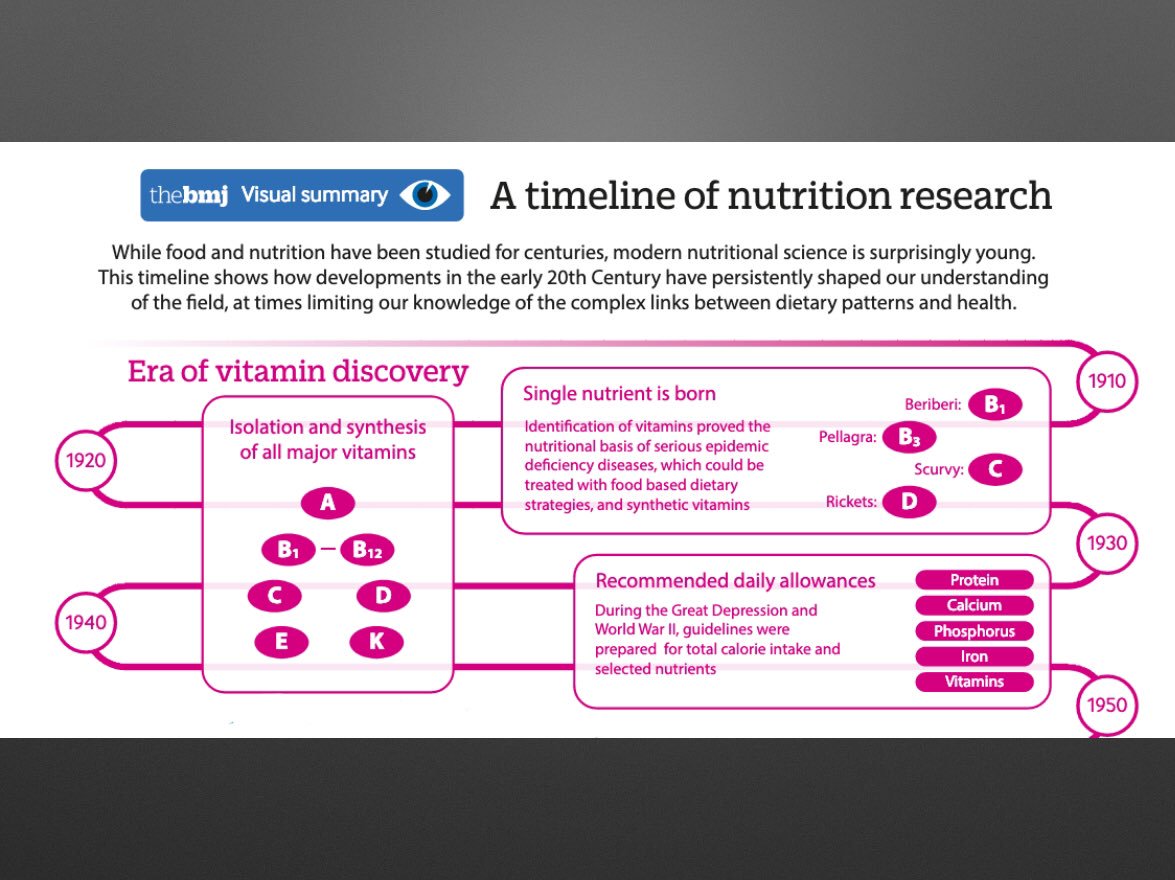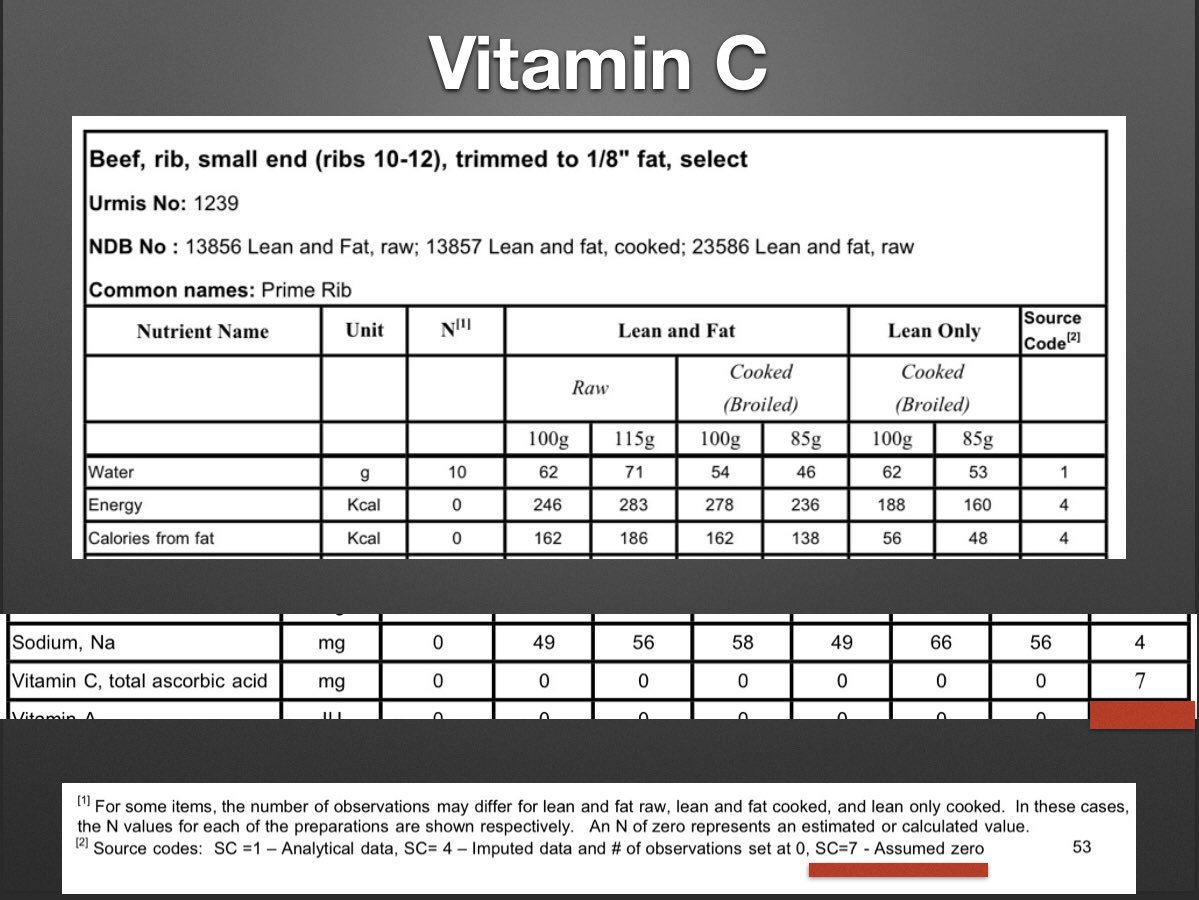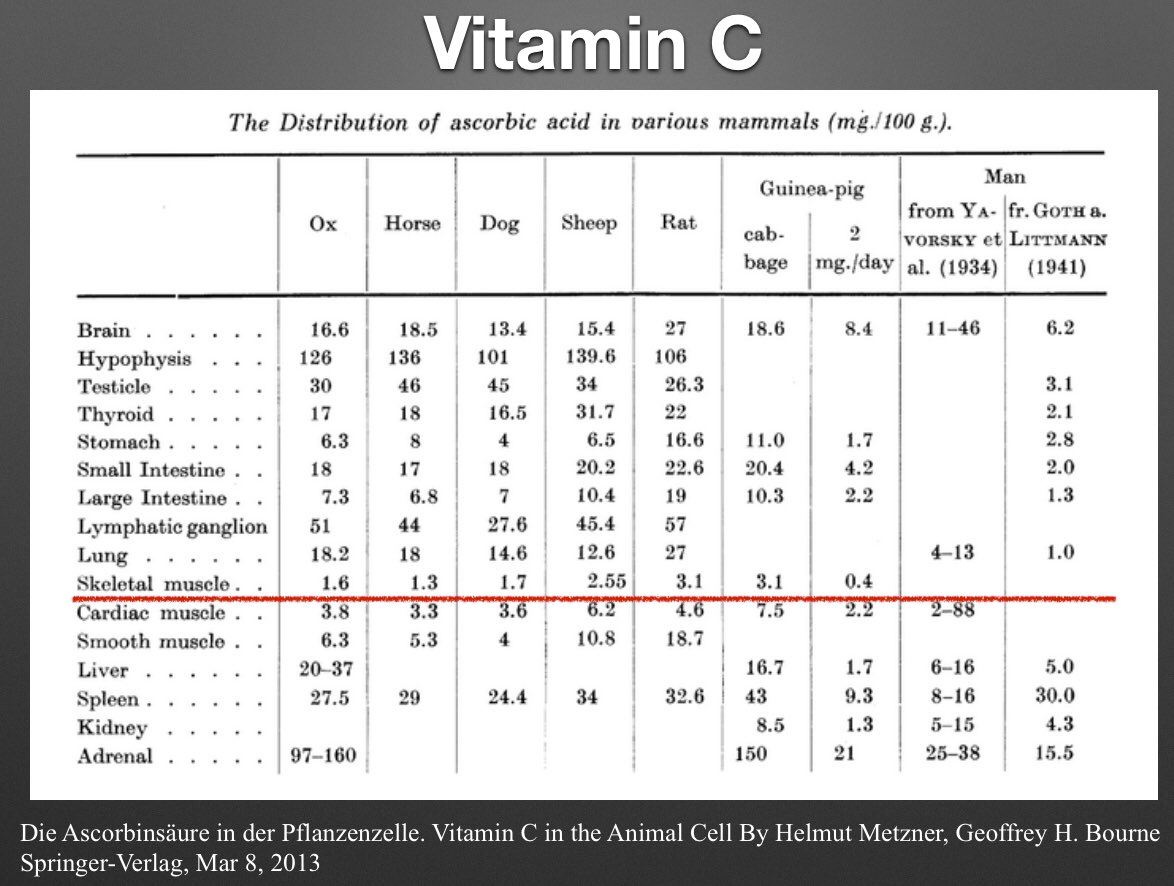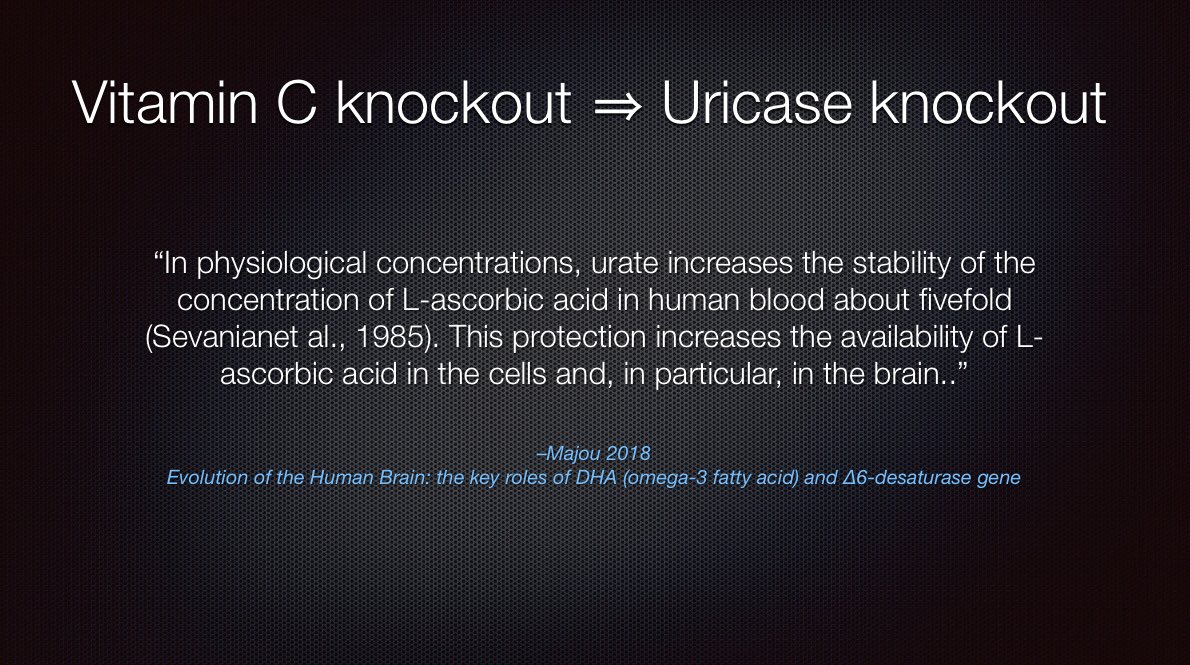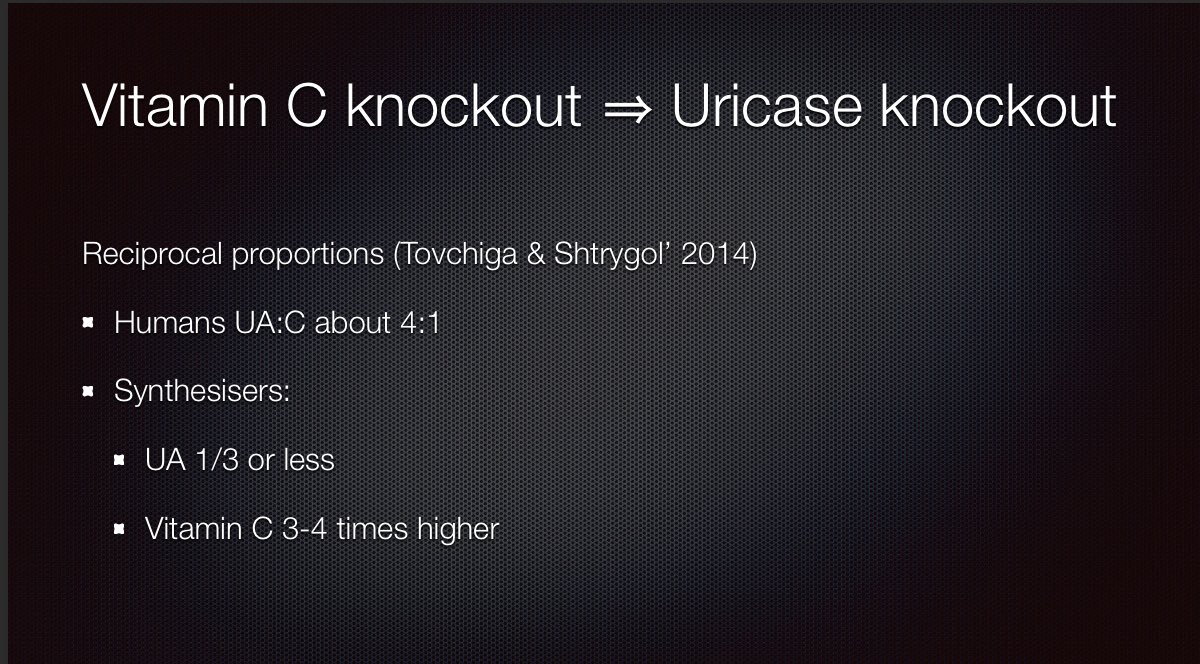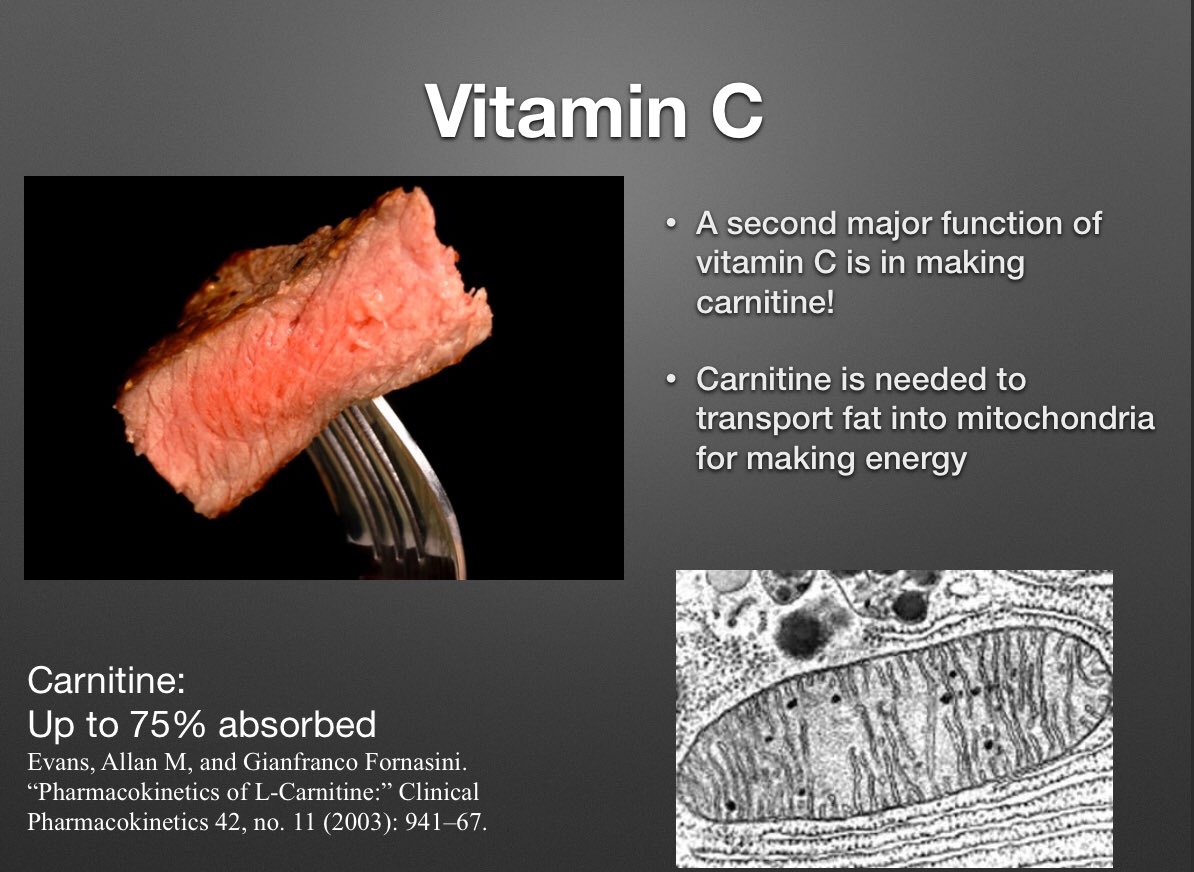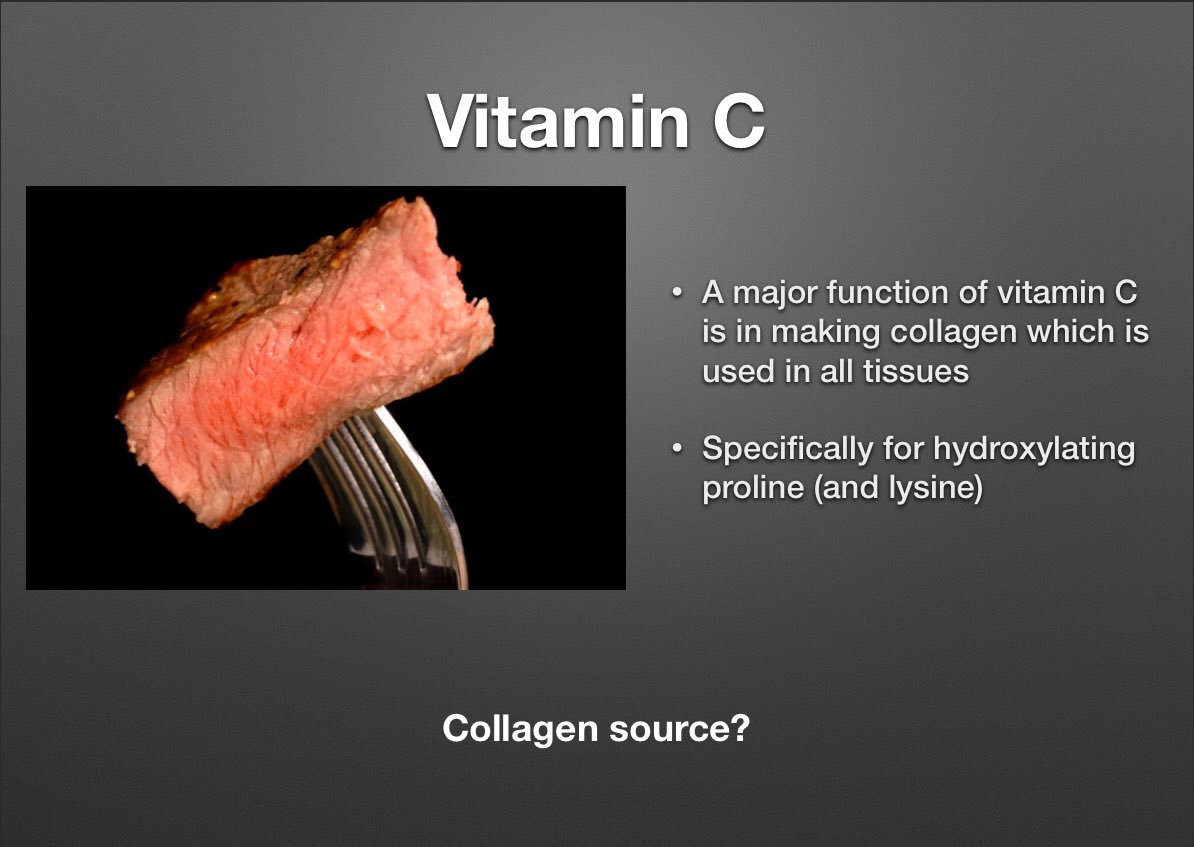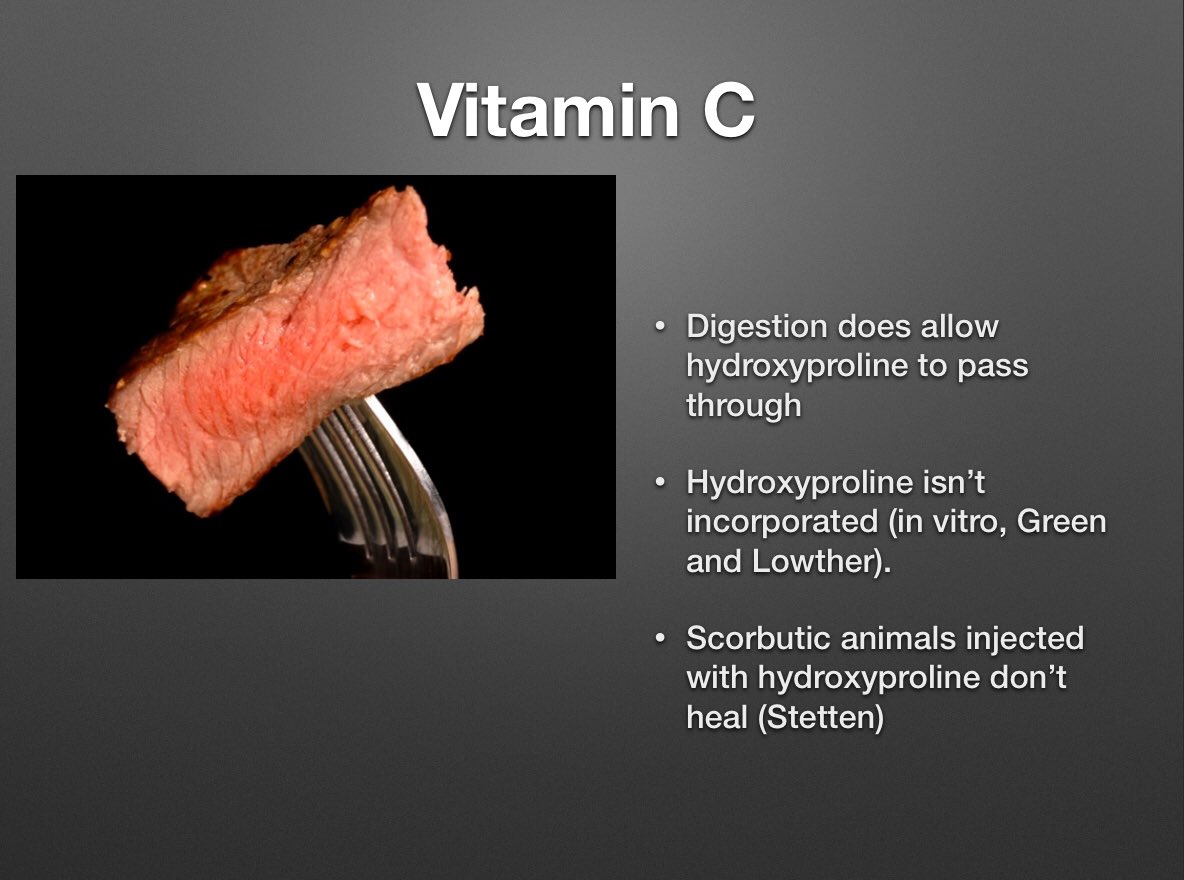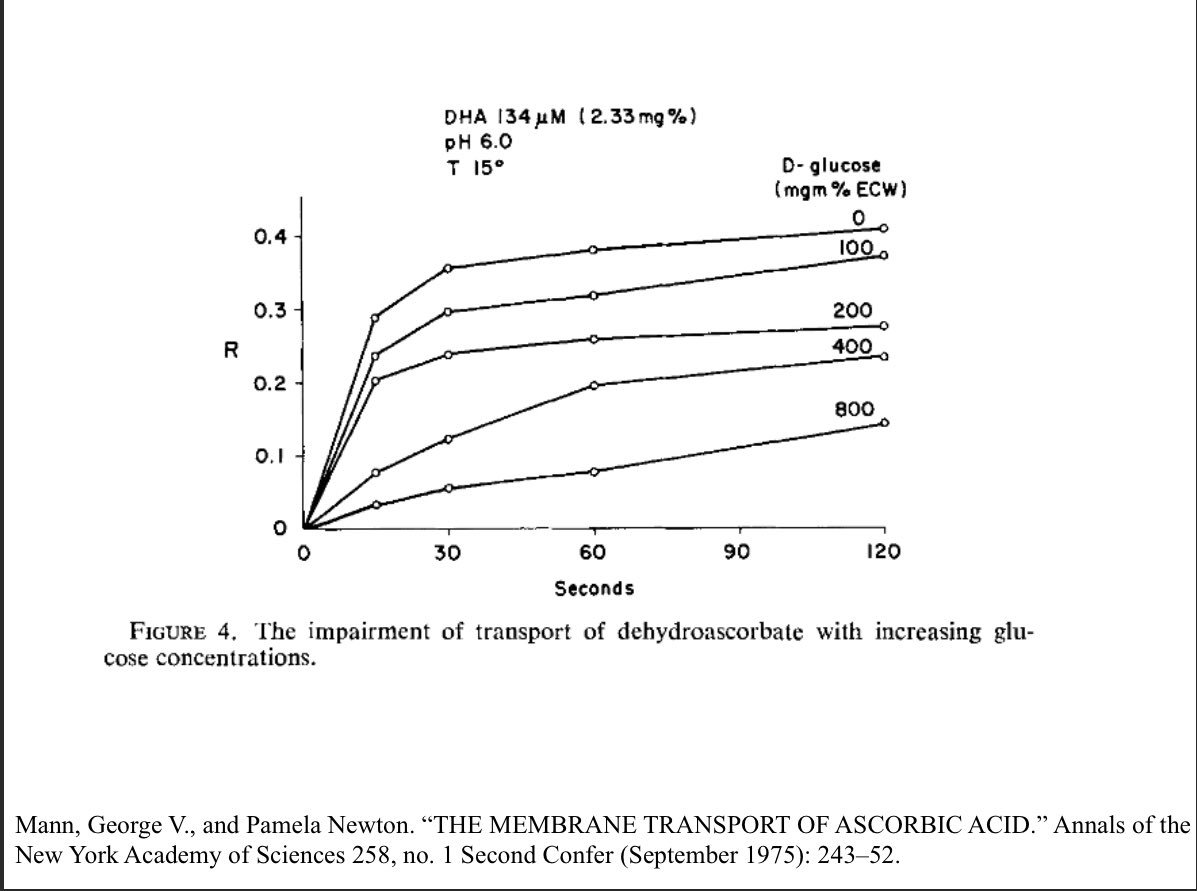Vitamin C comes up again and again for those first hearing about the carnivore diet. I have several articles about it, as my understanding has progressed. Some of the more important points I covered in a section of my @carnivorycon talk (link to follow). Here& #39;s an overview. 1/
First, it& #39;s been known for centuries that societies eating little to no plants didn& #39;t get scurvy, and that fresh meat would cure it. This was an observation scientists wanted to understand and explain. 2/
In the early 1900s nutritional science has its beginning in the discovery of vitamins, "vital amines" (first thought to be amino acids). Scurvy was a deficiency disease and therefore the fact that meat, a food comparatively low in vitamin C, cured it, ceased to be interesting. 3/
It& #39;s not actually true, as widely believed, that meat has no vitamin C whatsoever. The USDA database assumed that erroneously. When measured it is there, albeit in relatively small amounts. An antiscorbutic dose could be had in a pound or two of meat. 4/
Still this seems barely adequate. Why is it that meat has so little, yet cures that disease, and why is it that modern day people eschewing plants don& #39;t develop it? Normally it should appear within a month or two. /5
One hypothesis is that humans, like other primates who both don& #39;t break down uric acid, and don& #39;t synthesise vitamin C, rely less on it as an antioxidant, and more on uric acid. Uric acid and glutathione bolster vitamin C. Meat intake increases the production of uric acid. 6/
But meat can spare vitamin C in another way. One of its main functions is to aid in the synthesis of carnitine. Carnitine is essential to get fat into the cell mitochondria to use as energy. As it happens, the first symptom of scurvy, long before teeth fall out, is fatigue. 7/
Meat probably doesn& #39;t spare collagen, which doesn& #39;t get reused when digested the way carnitine does. Nonetheless, between the vitamin C content and the carnitine, the antiscorbutic properties of meat may be explained. 8/
There are other considerations that may come into play in the carb free context. For example less competition for cellular uptake in shared receptors with glucose, and enhanced glutathione on ketogenic diets. 9/
For more details, please see my articles on vitamin C:
https://web.archive.org/web/20170901000000*/http://breaknutrition.com/ketogenic-diet-vitamin-c-101/
https://web.archive.org/web/20170... href=" http://www.empiri.ca/2017/02/c-is-for-carnivore.html
https://www.empiri.ca/2017/02/c... href=" http://www.empiri.ca/2019/01/not-collagen-but-carnitine.html
and">https://www.empiri.ca/2019/01/n... my video presentation:
https://youtu.be/kX4qsJd_Plc
(Uric">https://youtu.be/kX4qsJd_P... acid presentation video will be posted soon!) 10/10
https://web.archive.org/web/20170901000000*/http://breaknutrition.com/ketogenic-diet-vitamin-c-101/
and">https://www.empiri.ca/2019/01/n... my video presentation:
https://youtu.be/kX4qsJd_Plc
(Uric">https://youtu.be/kX4qsJd_P... acid presentation video will be posted soon!) 10/10
I forgot to append the uric acid presentation!
Video here: https://youtu.be/lnKdvwngRdM ">https://youtu.be/lnKdvwngR... 11/10
Video here: https://youtu.be/lnKdvwngRdM ">https://youtu.be/lnKdvwngR... 11/10

 Read on Twitter
Read on Twitter